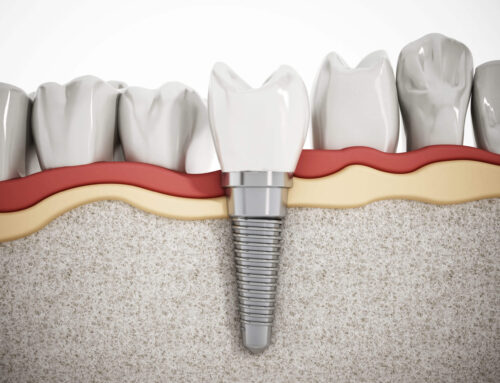You’ve been told you need to see an oral surgeon. So, which one do you choose? Fortunately, we have good news! Depending on your dental needs, your dentist will refer you to a dental physician or an advanced oral surgeon, also called an oral maxillofacial surgeon. However, understanding why your dentist would recommend an advanced oral physician will give you confidence in the care you receive.
General Oral Surgeon vs. Oral Maxillofacial Surgeon
One major difference between a general oral surgeon and an oral maxillofacial surgeon (OMS) is that an OMS can administer anesthesia. However, general surgeons cannot administer intravenous anesthetics or general anesthetics (combinations of intravenous and oral medications).
Here are four more ways these surgeons differ.
1. The Oral Surgeon with a Higher Level of Education
An OMS holds dual licensure – one as a dentist and one as a medical doctor. They hold the highest position in dentistry, being both a dental physician and a surgical practitioner.
2. Full-Scope Face and Mouth Surgeries
Although a general dental surgeon can perform various extractions, including extracting the wisdom teeth, there are limits.
However, an oral maxillofacial surgeon can perform extractions and all other types of surgery on the face and mouth, including:
-
- Corrective jaw surgery
- Cosmetic facial surgery
- Facial reconstruction
- Placement of dental implants
- Cleft lip or palate surgery
- Head, neck, and oral pathology
- Facial trauma
3. Extensive Training
According to the American College of Oral and Maxillofacial Surgeons, it can take up to 14 years to become an OMS.
-
- Two to four years of undergraduate study
- Four years of dental school
- Four to six years of residency training
The training they receive enables them to deliver expert treatment for various diseases, infections, and conditions of the head, teeth, face, and jaw. They’re able to repair muscles, bones, nerves, and other soft tissues, whether a condition is caused by genetics or trauma.
4. A Superior Level of Surgery
A general surgeon might have some training in dental implantology. Yet, an OMS has years of training in all forms of dental surgery.
Why Patients Need to See an OMS
A patient can be referred to an advanced oral surgeon by either their dentist or a general surgeon if they’re faced with a case beyond their realm of practice. Cases that are referred to an OMS include those of serious facial trauma, such as a fractured jaw or skull.
Even though a general surgeon can extract wisdom teeth, some cases are beyond their abilities, like when an impaction is severe or close to a nerve. When complicated cases arise, surgeons will send their patients to an OMS.
Put Your Trust in the Oral Surgeon with the Most Training and Experience
Your dentist wants the best care for you, so when there’s a certain treatment you need (or want), they’re going to refer you to someone they have confidence in. With extensive training and vast experience, an advanced dental surgeon is someone you can trust for complex surgical procedures.
Would you like more information about the training an OMS receives? Contact us today, or call us directly at 713-804-6055.  We’re happy to answer all your questions and/or concerns.






